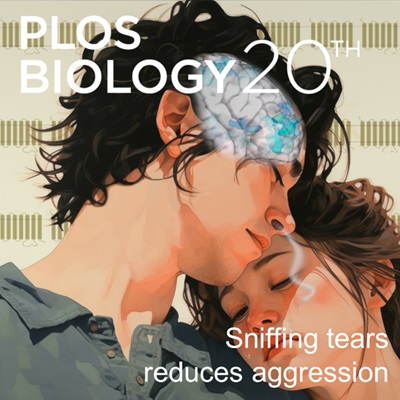高温会增加弧菌通过 VI 型分泌系统对珊瑚宿主和竞争细菌的毒力。
IF 9.8
1区 生物学
Q1 Agricultural and Biological Sciences
引用次数: 0
摘要
细菌病原体珊瑚弧菌会在变暖的海洋中诱发严重的珊瑚疾病。发表在《公共科学图书馆生物学》(PLOS Biology)上的一项研究揭示,高温激活了珊瑚弧菌的 2 个 VI 型分泌系统,通过部署针对竞争细菌和珊瑚细胞的毒性效应器来增强致病性。本文章由计算机程序翻译,如有差异,请以英文原文为准。
High temperatures increase the virulence of Vibrio bacteria towards their coral host and competing bacteria via type VI secretion systems.
The bacterial pathogen Vibrio coralliilyticus induces severe coral diseases in warming oceans. A study in PLOS Biology reveals that high temperatures activate 2 type VI secretion systems in V. coralliilyticus, enhancing pathogenicity by deploying toxic effectors against competing bacteria and coral cells.
求助全文
通过发布文献求助,成功后即可免费获取论文全文。
去求助
来源期刊

PLoS Biology
BIOCHEMISTRY & MOLECULAR BIOLOGY-BIOLOGY
CiteScore
15.40
自引率
2.00%
发文量
359
审稿时长
3-8 weeks
期刊介绍:
PLOS Biology is the flagship journal of the Public Library of Science (PLOS) and focuses on publishing groundbreaking and relevant research in all areas of biological science. The journal features works at various scales, ranging from molecules to ecosystems, and also encourages interdisciplinary studies. PLOS Biology publishes articles that demonstrate exceptional significance, originality, and relevance, with a high standard of scientific rigor in methodology, reporting, and conclusions.
The journal aims to advance science and serve the research community by transforming research communication to align with the research process. It offers evolving article types and policies that empower authors to share the complete story behind their scientific findings with a diverse global audience of researchers, educators, policymakers, patient advocacy groups, and the general public.
PLOS Biology, along with other PLOS journals, is widely indexed by major services such as Crossref, Dimensions, DOAJ, Google Scholar, PubMed, PubMed Central, Scopus, and Web of Science. Additionally, PLOS Biology is indexed by various other services including AGRICOLA, Biological Abstracts, BIOSYS Previews, CABI CAB Abstracts, CABI Global Health, CAPES, CAS, CNKI, Embase, Journal Guide, MEDLINE, and Zoological Record, ensuring that the research content is easily accessible and discoverable by a wide range of audiences.
 求助内容:
求助内容: 应助结果提醒方式:
应助结果提醒方式:


